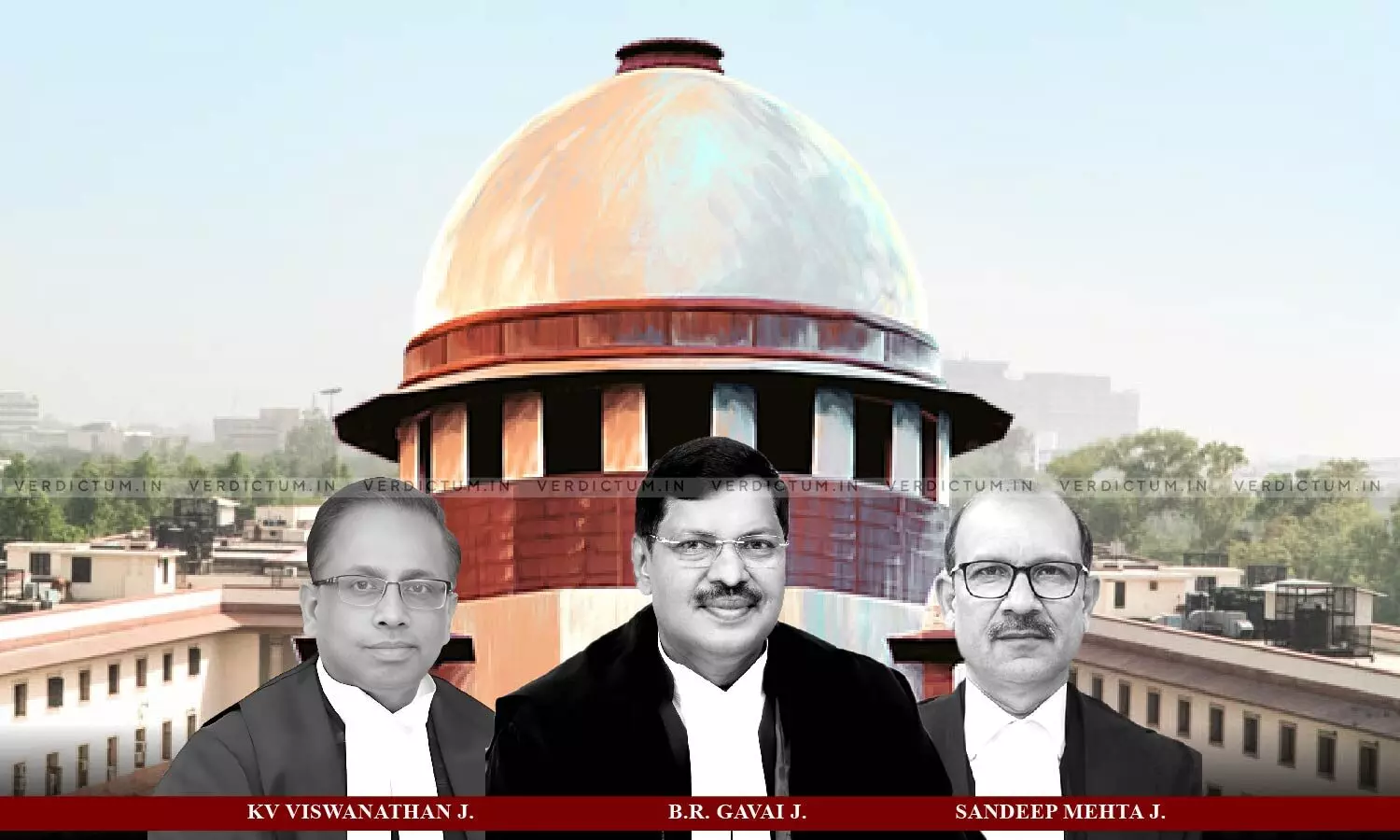
Scope Of Interference By High Courts In Appeal Against Acquittal: Supreme Court Explains
 |
|The Supreme Court has reiterated the principles governing the scope of interference by the High Court in an appeal filed by the State for challenging the acquittal of the accused recorded by the Trial Court.
The Bench of Justice BR Gavai and Justice Sandeep Mehta observed that, "it is beyond the pale of doubt that the scope of interference by an appellate Court for reversing the judgment of acquittal recorded by the trial Court in favour of the accused has to be exercised within the four corners of the following principles:-
(a) That the judgment of acquittal suffers from patent perversity;
(b) That the same is based on a misreading/omission to consider material evidence on record;
(c) That no two reasonable views are possible and only the view consistent with the guilt of the accused is possible from the evidence available on record.
The appellate Court, in order to interfere with the judgment of acquittal would have to record pertinent findings on the above factors if it is inclined to reverse the judgment of acquittal rendered by the trial Court."
The appellants, Babu Sahebagouda Rudragoudar (A-1), Alagond Sahebagouda Rudragoudar (A-2), and Mudakappa @ Gadegappa Rudragoudar (A-3), along with three others, were tried in Sessions Case No. 28 of 2002 for various charges under the Indian Penal Code.
The trial court acquitted all six accused on July 23, 2005. However, the State of Karnataka challenged this acquittal, leading to a High Court appeal. The High Court reversed the acquittal of A-1, A-2, and A-3, convicting them under Section 302 read with Section 34 IPC and sentencing them to life imprisonment.
The appeal against the other accused varied: A-4's appeal was abated due to his death, while the appeals against A-5 and A-6 were dismissed, upholding their acquittal. The appellants challenged this decision, leading to the current appeal, disputing the High Court's reversal of their acquittal and subsequent conviction.
The Apex Court observed that none of the essential mandates governing an appeal against acquittal were considered.
It was further noted that neither the evidence of the eye witness was trustworthy nor did the prosecution provide any corroboration to the vacillating evidence of the eye witnesses.
In light of the same, it was held that, "the view taken by the trial Court in the judgment dated 23rd July, 2005 recording acquittal of accused is a plausible and justifiable view emanating from the discussion of the evidence available on record. The trial Court’s judgment does not suffer from any infirmity or perversity. Hence, the High Court was not justified in reversing the well-reasoned judgment of the trial Court thereby turning the acquittal of the accused appellants into conviction."
Cause Title: Babu Sahebagouda Rudragoudar & Ors. vs State of Karnataka
Click here to read/download the Judgment